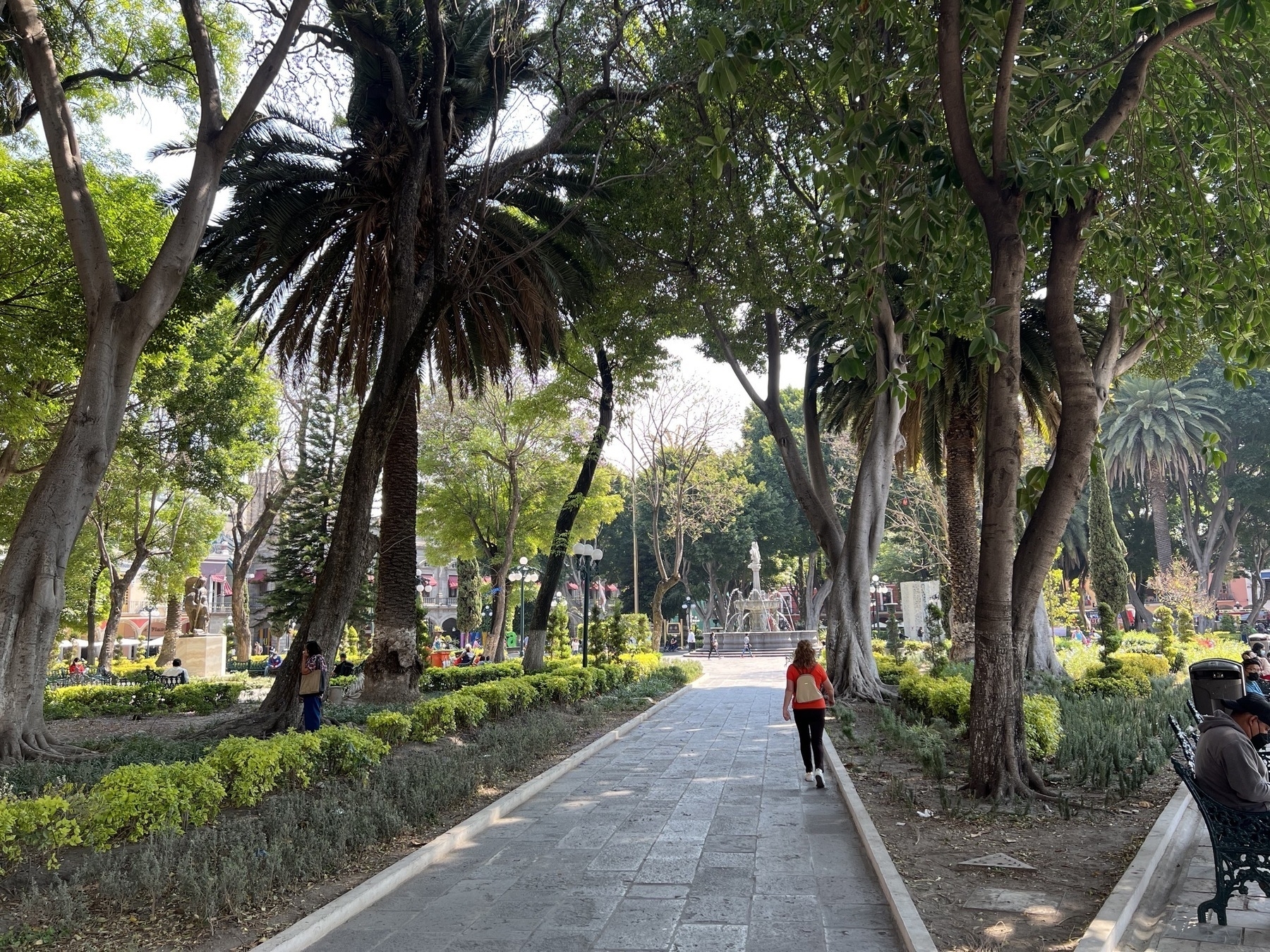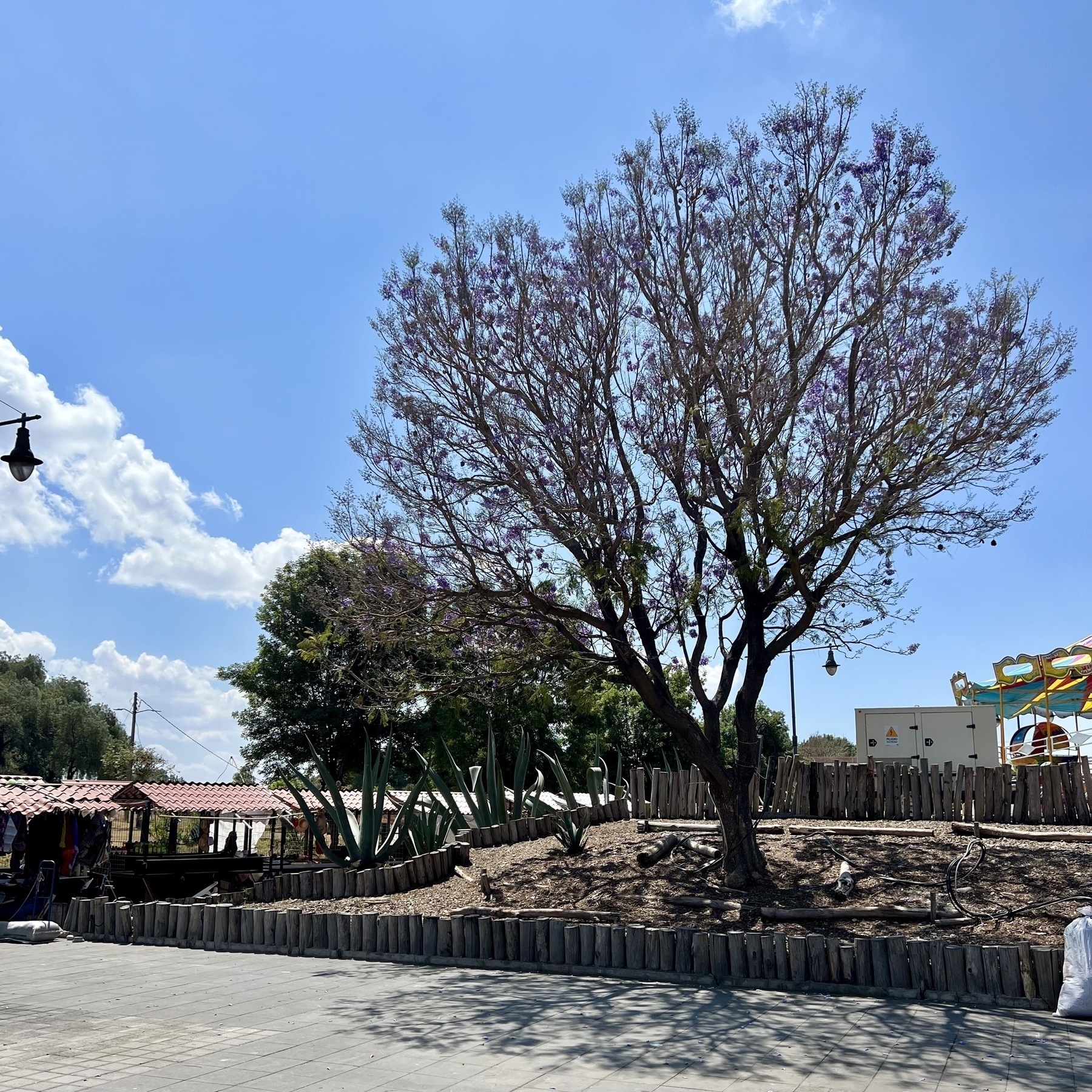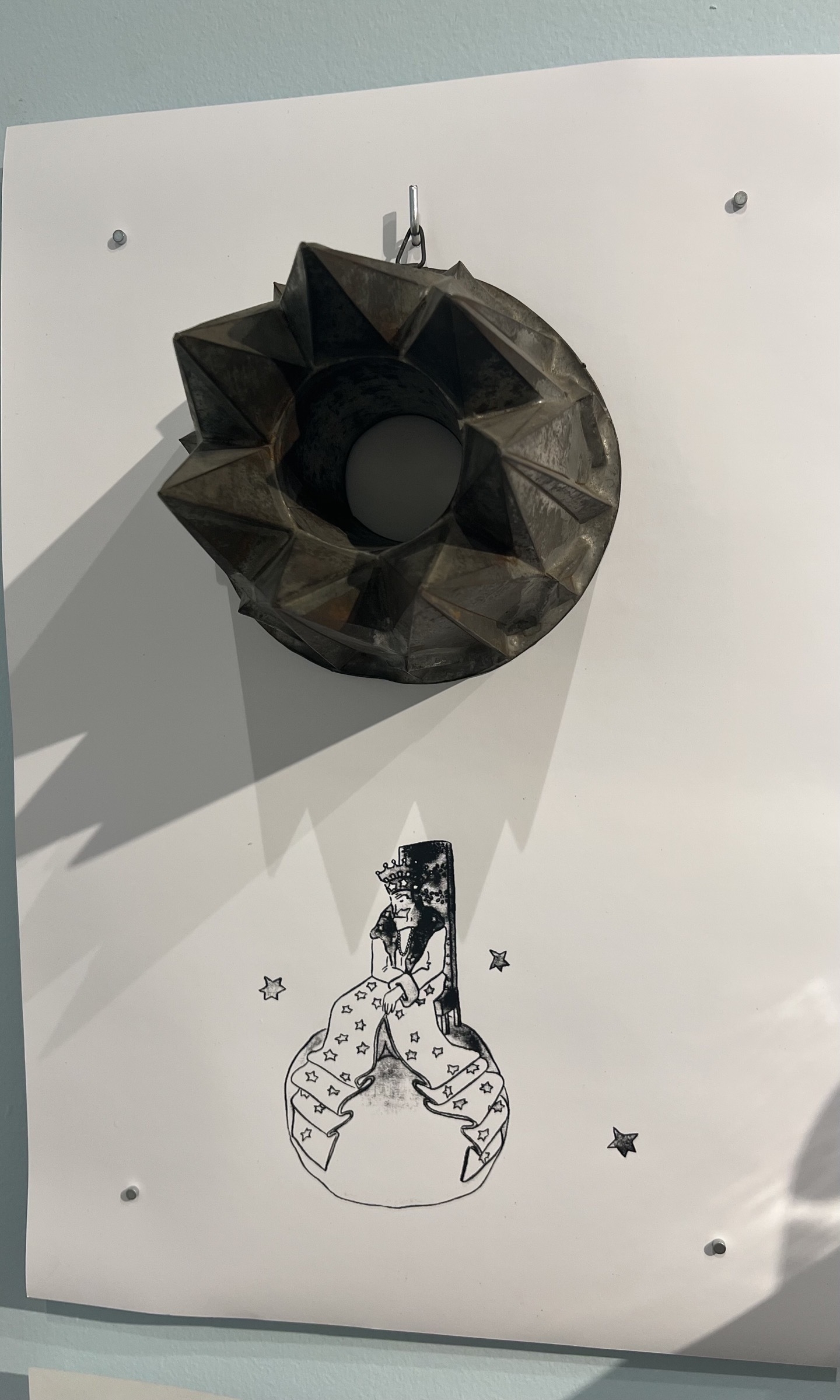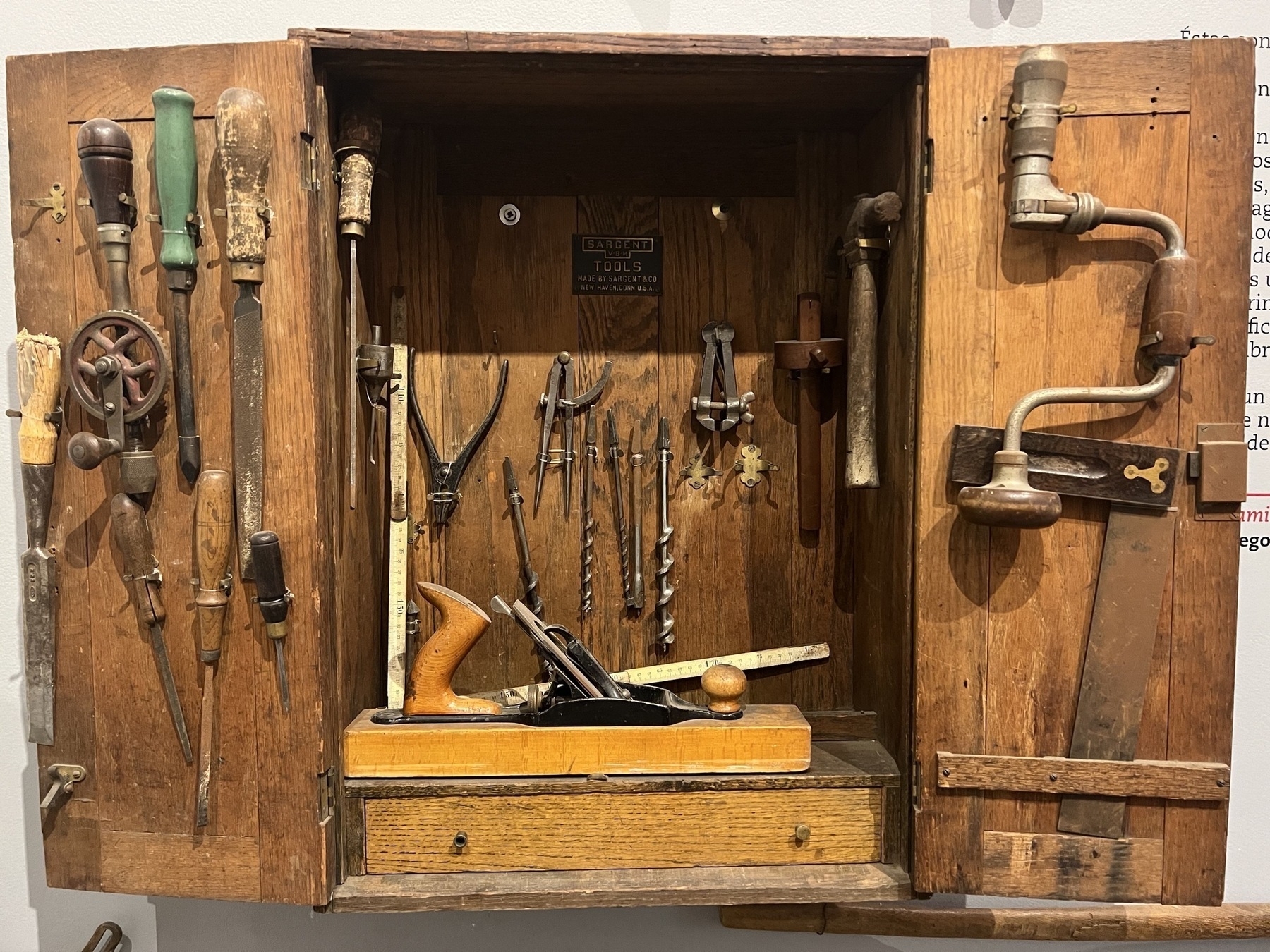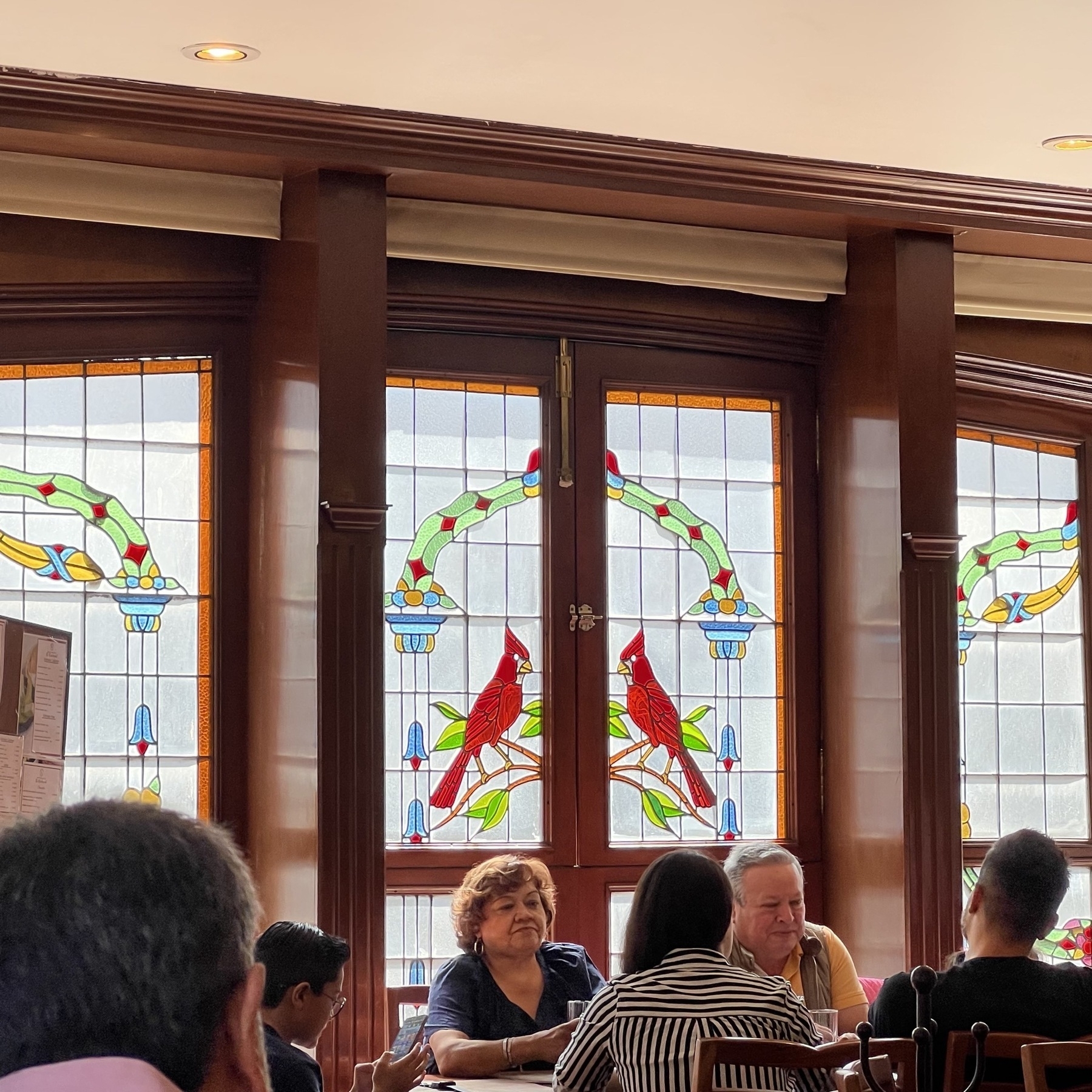I played some pick up volleyball today. All the leagues I’ve signed up for so far have been intentionally as recreational as possible. While I love playing, it’s been 17 years since high school– so my confidence wasn’t very high and I wanted to start at the beginning. I’ve had a blast, and intend to continue to play recreationally.
I knew today might be a bit different. Pick up, rather than league play, would likely attract people who really like to play volleyball. And sure enough, it drew a small crowd of folks who all play in leagues regularly. It was time for 3v3, not 6v6 with two subs, and each team didn’t have 2-3 folks who had essentially never played volleyball.
I was nervous. Have I built up the cardiovascular health to play for 90 minutes like this? Will I be good enough or feel like a fool? Proudly, I was not a fool, and I was able to keep up. My blocks were consistent and strong enough to almost shut down a very strong attack game by the other team. I frequently found myself in the right position to get some solid digs from the back on meaningful attacks. I had a couple of strong hits, including one where I had to reach well behind myself and attack with my left because of a high set.
It felt like playing volleyball.
And although my knees and ankles and back feel their age, I’ll be playing a lot more pickup. I think I might even sign up for a 4v4 intermediate league to go with my recreational playing.
I don’t like running or aerobics at the gym. I like my time with weights to be focused on strength training. Ramping up to 2-3 volleyball games a week has not only been an absolute blast, but makes me feel great about having a well-rounded workout routine. It’s the best I’ve felt physically in a long time, and it sure feels like I’m focusing on fun.
Eight years ago today, about this time, I was heading to the ETC in Baltimore to meet Jess for the just the third time, but this time as an employee. I had no idea what I was doing or what it would mark the start of.
But despite being terrified, we started filling a whiteboard with “what is Allovue?” She had already been at it a year and was finally ready to start building the product. I’m not really sure if she was supposed to be mostly telling me her vision or if I was meant to participate.
As I recall, I just jumped in, excited, and by the time Ted (our soon to be CTO) came in, Jess and I had just about covered the two whiteboard walls. Then Ted and I started working on a data model while Jess took a call about some award she was about to receive.
Jess will often pull out a Moleskine from the (now quite short, relatively speaking) time before I joined Allovue to show me how my new idea was just her old idea. I still sometimes mention that whiteboard.
As I headed to the airport that night, I still didn’t really know what my job was or fully understand how anything start up worked. But I knew I was still excited and thinking about Allovue, which is how I had felt every time I talked to Jess and why I knew I needed the job.
I’ll tell the embarrassing story of what happened next in two years, on my tenth Alloversary.
Instagram’s ad unit is excellent, especially compared to both Tumblr and Twitter. There’s no reason these platforms aren’t better at this. The problem with social media is not ads, but clearly there aren’t many teams that succeed at building a good mobile ad product.
This is true as a user of the core social products, not someone buying ads. But it’s pretty clear to me that ads that are good from a user experience translates to ads that are valuable to ad buyers.
Paul Graham is a smart guy who consistently writes essays that are thoughtful and powerful, and sometimes dumb as fuck and transparently demonstrate the weird bubble he lives in.
Today he wrote one of those, interestingly linking the term heresy to a new emerging, non-religiously-based set of views that can serve to make one persona non grata in some circles (while also guaranteeing you a lifetime of funding from the Mercers and Peter Thiel alongside the adoration of their funded lackeys).
It’s just incredible how during a time of widespread book banning led by the Evangelical right and “Don’t Say Gay” laws that this statement was made as though it were fact,
There are aggressively conventional-minded people on both the right and the left. The reason the current wave of intolerance comes from the left is simply because the new unifying ideology happened to come from the left. The next one might come from the right. Imagine what that would be like.
The “wave of intolerance” Graham points to seems to be coming from the left these days because Silicon Valley individualism demands it— that’s why he ignores anti-trans and homophobic laws and anti-Blackness and racism. I don’t quite know why he ignores the xenophobia that bristles Silicon Valley because they want plentiful, inexpensive foreign labor in the US. I know he ignores misogyny because he’s spent his life literally building and profiting off of a “good old boys” network and can’t understand any critique that it’s been something less than a meritocracy.
The more left driven intolerances challenge Paul Graham to be better. The right wing ones affect other people.
I don’t love the lack of repentance and forgiveness in our world. I think we all have a right to redemption. I think we have a right to have our worst moments be forgotten, or at least to have them fade and let their stench dissipate. I think “call out” and “call in” culture have real limits and challenges we haven’t worked out. But while the right wing is literally using the power of the state, often in minoritarian governments assisted by gerrymandering, to spread a chilling effect on speech among professors, teachers, and doctors, I’m not sure it’s the dirtbag left on Twitter or a few college student protests that we should be concerned about.
It’s nice to see a Batman movie spend its time with Batman doing Batman things. Almost every other Batman movie wants to spend its time with the villains or show Bruce Wayne at a charity gala. I was worried we’d get the same given how many characters are in this film. But instead we spend most of our time with Batman moving through one coherent (though expansive) crime story.
They succeeded at telling a coherent, balanced story with an ensemble cast. Despite having four well-known Batman villains—Penguin, Catwoman, Falcone, and Riddler— everyone was in the same movie telling the same story. This is rare in Batman (and the superhero/comic book genre generally).
Pattinson was possibly the least well cast actor, but that’s only because the rest of the cast was that great. He’s totally fine, but being a movie that spends its time with Batman and not Bruce, I’m not sure it’s a big deal who is behind the mask so long as they have the physicality to perform the action scenes.
As shot, it’s hard to point to things I would cut in the movie even though it’s too long. If I were reviewing the script, I’d probably remove either Falcone or Penguin (their roles for this story can be collapsed). This will be blasphemous to those who rightfully love Zoë Kravitz as Catwoman, but I also suspect you could cut this movie significantly by removing her. It’s not that she wasn’t great or didn’t pull together a lot of plot— she was far better integrated than I feared— it’s just that I think they could have saved Catwoman and write an equally effective story without it.
This whole movie gave me a very Seven/Fincher vibe.
I think it might be the best Batman movie.
The car was dumb.
Riccardo More wants you to believe that Catalyst has led to an empty landscape of new, great Mac apps, claiming
An operating system (and relative first- or third-party applications) that really embraces the potential and the characteristics of the specific hardware it runs on needs to be built on an equally specific set of frameworks, and does not need to be contaminated by frameworks and paradigms from an operating system that historically is a simplified derivation of Mac OS X itself.
But I think Christian Tietze has it right,
Riccardo is not happy about something, and I don’t understand what or why. Is it just existential fear for the Mac? Or is he genuinely unhappy with the tools in his toolkit? Which are these? … All in all, the Mac app landscape appears to be in good shape.
More’s own list of “old (some very old), tried-and-trusted applications” includes NetNewsWire, which is a completely modern Swift rewrite that only shares it’s name (and creator) with the original.
But there are many great new Mac apps, they just may solve problems that More has already solved his own way. He mentions nvAlt for notes, which is about to be re-released as a ground up, rewrite commercial product. Unless he only pays attention to the Obsidian and Notion crowds, there are many other great macOS note taking apps like Craft and Bear, both of which feel great. He’s happy with BBEdit– who can blame him!– but it’s not like Nova didn’t just get released. He doesn’t mention any email applications, so I’m assuming he’s just using Mail.app or webmail, but Mimestream is phenomenal if you’re using Gmail 1. I could say the same about calendars and Fantastical.
What’s going on here? Some of us have started to reach middle age. We have the tools and solutions that work for us and have become engrained in how we think about using computers. Just like seemingly every generation decides that music is worse than it’s ever been and nothing new is as good as what came before, we just don’t look for new solutions to our problems. We rebuild ourselves around the tools that we have that work great. New stuff loses any luster it had just for being new, and it turns out a lot of “problems” we have with our tech… aren’t.
Look at how someone ten years younger than you uses their phone or computer. I bet they have a whole different set of obviously essential tools solving the same problems we have but in a way that works for them.
The apps haven’t gotten worse. The platform simply hasn’t changed that much. What we use computers for has stopped changing so much. And the problems we have haven’t changed that much. It’s natural the tools and solutions haven’t changed that much either, provided they have a sustainable business model.
-
Please, please, please start working on JMAP and Fastmail support! ↩︎
The internet is this big confusing place. I want a place that feels like home for me… It’s easier, in some ways, to do governance around these real communities because you can say, “We have some shared assumptions in common. We have some shared belief. We know that we need this space because there’s no other spaces out there for us.”
– Ethan Zuckerman in The Good Web: Competing Visions for the Future of Social Media
When I think about The Good Web, it was one full of real communities. We have real communities today, but they are far more porous and amorphous. Real communities on centralized platforms confront mega-scale problems within tiny spaces, and the poorly defined boundaries on most mass social platforms breaks down the ability to do community governance.
The Good Web was filled with bad behavior– the abusive forum or list moderator is an ancient web archetype. It wasn’t always welcoming, but it was governable.
After years of trying to get my emotions more under control, the most successful thing I’ve ever done professionally is verbally acknowledge and annotate.
“I feel like I sound angry right now, but I’m not.”
“If I seem frustrated, I think it’s because I didn’t sleep well.”
“I understand I’m being reactive right now and may feel differently later.”
If I could somehow recognize the emotion, reset, and talk and respond a different way in the first place, that would be amazing. But meditation, therapy, and all kinds of trying never got me there.
What I have learned is how to feel when it’s happening and correct afterwards.
I was thinking earlier about what it would be like to rearrange my life around monthly travel when it suddenly dawned on me that monthly travel would be a decline from my pre-pandemic lifestyle.
Of all the things I’m hoping for, a return to travel has got to be the top of my list. Even when it’s for work, even if I can just tack on a day or half day, the refresh I get from a change in environment is so important.
Routine siphons vitality.
That’s true for me even when the routine has not become a grind. But the pandemic has made all routine a grind, and getting out and about is fixing something inside me.
I sent my proof of vaccine to Puerto Rico before entering. Without my QR code, they would not have allowed me to leave the airport.
At nearly every restaurant or indoor store, I’m asked to present proof of vaccination. Hand sanitizer is still common and requested upon entry places.
Masking compliance is universal among those who live on the island, even outdoors (at least in tourist areas in San Juan).
I’ve spent this trip comfortably dining indoors and out, in and out of boutiques and galleries, and by the pool and the beach. 1
None of these measures feel meaningful restrictive. All of these things fade into the background. Were they all necessary for safety? Maybe— masking outdoors seems like the least meaningful of these measures.
Really this whole experience reminds me that all of the fabricated outrage over simple public health measures has created far more inconvenience and disruption than the measures themselves. Fear of the anti-vax, anti-mask crowd showing up and getting rude and violent with retail and food services workers has halted any attempt to protect public safety in favor of self-imposed restrictions that are far more severe.
I can’t help but believe that it is not the COVID cautious who have changed normalcy, but the COVID denialists who have led us to an extended pandemic, with no public health interventions being acceptable.
I haven’t been restricted from doing anything at all in months… maybe more than a year? But I have also been to places with very different COVID responses and know how much safer some places feel. And guess what? When I feel safer, I do more.
-
While I wasn’t working, at least. Most of my time was at a conference, whose organizers nailed the hotel, location, and agenda. We’ve been outdoors a bunch, with some nice blocks of a few hours here and there to enjoy our surroundings. ↩︎
The mistake I made is a common one: I conflated a fandom with the art that the fandom loves.
– Jordan Calhoun in Stop Blaming Fandoms, FFS
I know that I personally have a difficult time separating art from its fandom. With critical conversation expanded to include, well, everyone these days, it’s hard to experience any art without being “exposed”. Discovering a community centered around something you love feels categorically different than being surrounded by a community that loves something you haven’t experienced.
Maybe I can mature past this, but for now, I need distance from community to form have own experience.
It feels like I cannot be reminded often enough how awful it is to be a woman on the internet. So it is with sadness, shame, and embarrassment that I am sharing Aubrey Hirsch’s recent piece in Men Yell at Me, That’s How It Works When You’re a Woman on the Internet.
Women do not need to read this. They do not need to be reminded of the trauma that they face being women on the internet. But every single man should read this piece and consider how they are going to atone.
That’s right– if you’re a man, you need to think about how you are going to personally atone for the harassment that women face by existing in public. It doesn’t matter if you don’t feel you are directly taking actions against women, you live in a society and a culture that makes men feel safe behaving this way. You live as a beneficiary of not facing harassment and fear for your very existence, and the men who are committing these acts against women sure as shit aren’t going to respond to their victims’ pleas or power.
Men are responsible for a world where men treat women like this. We must all consider how we are going to act to build a world less like this. These views and actions persist with our acquiescence when it lacks our permission.
I don’t remember learning about the Holocaust. When I read people discussing when is the appropriate time to introduce children to this history, I never know how to answer. I always knew about the Holocaust.
I always knew about the family coming from somewhere that was not here. I always knew that the family that made it here was a small fraction of the family that we had. I always knew that there were some people who hated me for one of the only things I knew (and liked!) about myself— I am Jewish.
I don’t remember not knowing about the Holocaust.
I do remember the first time I read Night. It was freshman year of high school. Not only did I know about the Holocaust, but I had read about it in history text books, learned about it during my Jewish education. I had visited the United States Holocaust Memorial Museum. My familiarity with the Holocaust was, I felt, pretty deep.
Reading Night was different. I remember at first being surprised at how much my non-Jewish classmates knew about the Holocaust as we made our way through the book. But that combination smug and dismay feeling was quickly erased, because Night filled me with a horror and a pain that has lived with me forever. Eli Wiesel’s account broke me and somehow made something which had felt real and haunting instead feel real and present.
There is no way to learn about the Holocaust from a place of safety.
The right in this country is banning books again. This time, we cannot learn about the Holocaust from a book with vulgarities, regardless of the vulgarity of the Holocaust. The Bluest Eye is banned, as it often has been, because of its depiction of sexual violence and racial violence, regardless of the truth of those events.
Many Americans, whipped up by demagogues and ideologues and charlatans are questioning how students are taught, wanting to make sure we return to the whitewashing of history that was prevalent during Boomer childhood. For example:
“With all the drawbacks of slavery, it should be noted that slavery was the earliest form of social security in the United States,” students read in Alabama history textbooks of the 1950s, ’60s and ’70s. And there was this: “A jail sentence or the execution of a slave was considered to be more of a punishment for the master than for the slave, because the slave was such valuable property.”
A Virginia textbook of the same era told students that Virginia “offered a better life for the Negroes than did Africa. In his new home, the Negro was far away from the spears and war clubs of enemy tribes. He had some of the comforts of civilized life.”
The punishment of enslaved people was described as rare and unfortunate, but necessary. “Most masters did not want to punish their slaves severely,” the Virginia textbook read. “In those days whipping was also the usual method of correcting children. The planter looked upon his slaves as children and punished them as such.”
– From Joe Helm in Teaching America’s truth, August 28, 2019
It seems that the alt-right insult of just a few years ago now applies more strongly to the right wing itself, which now offers up a call in hotline for parents who don’t like what their children are being taught in school.
As a kid, I remember watching Field of Dreams, and there being absolutely no question about who the heroes were– not the folks banning books, which was anachronistic in 1989.
What does this all add up to?
A fearful level of anti-intellectualism, a total denial of our own history which can only hault social progress, and endless division and strife as America slides further from its ideals and toward its past.
The arc of the moral universe is snapping back, and it’s hitting way harder than a slap.
I have replaced the Photos link in the navigation to the new Books. Photos can still be viewed from the Archive page, just by clicking on the photoblogging category link on the top of that page.
This is not a photo blog, though I often post pictures, and I’ve decided that having a whole separate navigation item just to link to an Archive page with only photo posts wasn’t that important.
Instead, reflecting my long hobby of reading (and tracking my reading on various websites that are not my own), I’ve added a Books section. A few bits of note:
- I generally only track fiction reading of books I read with my eyes. I’ve already started to change this slightly in 2021, having tracked some non-fiction, but I would not take this as an exhaustive list of all long form things I have read and/or listened to.
- I am using a combination of Micro.blog’s bookshelves features and images with Bookshop.org affiliate links. In some cases, this has caused me to use ISBN listings that do not have great images from Micro.blog to try and ensure that all the links take you to a valid place to buy some books.
- Because of some limitations in the Micro.blog bookshelves feature, for now, things are not sorted quite how I’d like (with the most recently read books on top). I expect that the sort order will eventually change.
Lastly, for other folks who are using Micro.blog and might want to do something similar, I am considering releasing a plug-in, but won’t do so without considerable interest. I write my blog modifications mostly for myself and am not super interested in making them highly configurable to other theme environments. In this case, I think it’s actually quite simple to extract the functionality as I currently have it. However, if you want a far more flexible book page experience, I recommend Moondeer’s bookshelves plug-in. It’s highly configurable and Moondeer seems motivated to maintain a solid, general purpose book architecture. That said, even if I don’t release this as a plug-in, I’d be happy to share any template code or CSS that might be helpful to others.
Of course, this whole project wouldn’t have happened if I wasn’t procrastinating from doing work or reading my current book, which I admit may have to go into the “did not finish” pile, at least for now.
Some evidence for partisan sorting of executives into “compatible” companies.
I guess my inclination might be to say that it’s tragic we can’t escape politics. At the same time, the example that Kevin Drum gives in his post is worth considering. Would I want to work at an oil and gas company? While it might be healthy to have boundaries between my occupation and my identity and beliefs, the moral dissonance of my material survival depending on acts I consider deeply wrong would probably cause me to crack.
Maybe the increase in partisanship that is creeping into all parts of American cultural life reflects clearer stakes and clearer boundaries. Maybe corporations, organizations, and governments past lived in less clear moral space that made it easy to be unsure.
Executives are an interesting class to look at when it comes to partisan sorting. These elite have choices on where they work, and their professional and personal reputations are especially tied up in where they work. You will forever be the “ex-CxO at Exxon” or the “former big agriculture executive”. Why wouldn’t they sort so that these identities they carry serve them professionally and personally into the future?
Today’s world may have more partisan sorting, because we have lost the ability to forget. Who you were is always with you, because anyone can find out in a blink of an eye. You will always be that person who cashed in working at a crypto company. You will always be someone who worked in oil and gas during the fracking boom. You will always have been at Facebook during the Trump presidency. Any of these things may be something you’re comfortable with, but it’s easy to see how you may have to face people in the future who will see them as concerning. It’s not much of a leap to see how sorting toward a partisan “agreement” in values proceeds from there.
It’s the path of least resistance dissonance.













